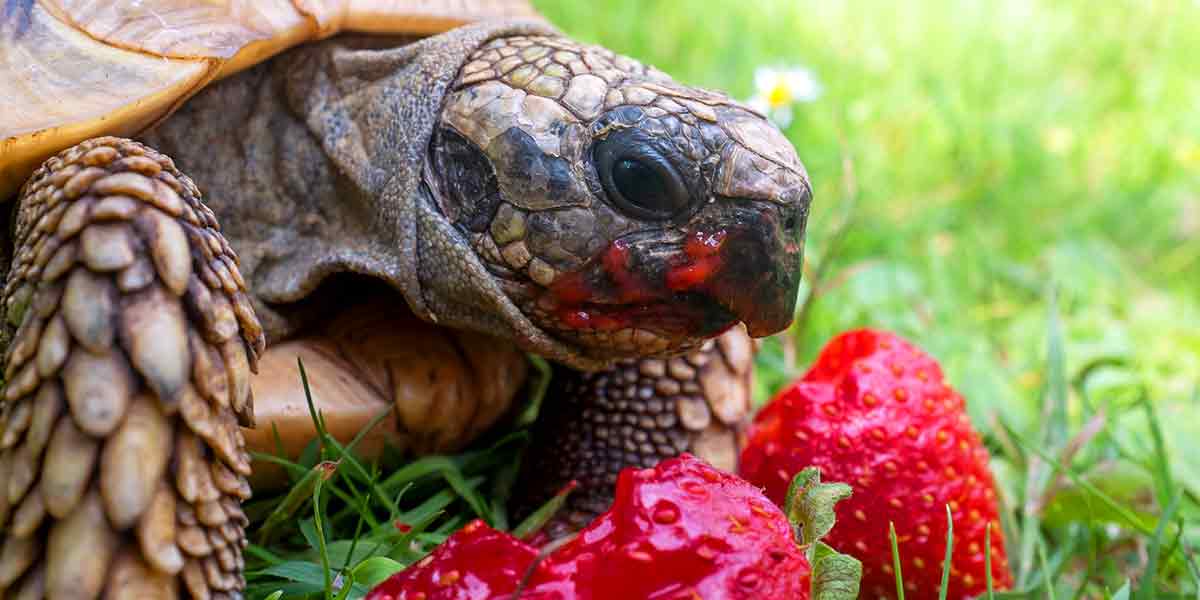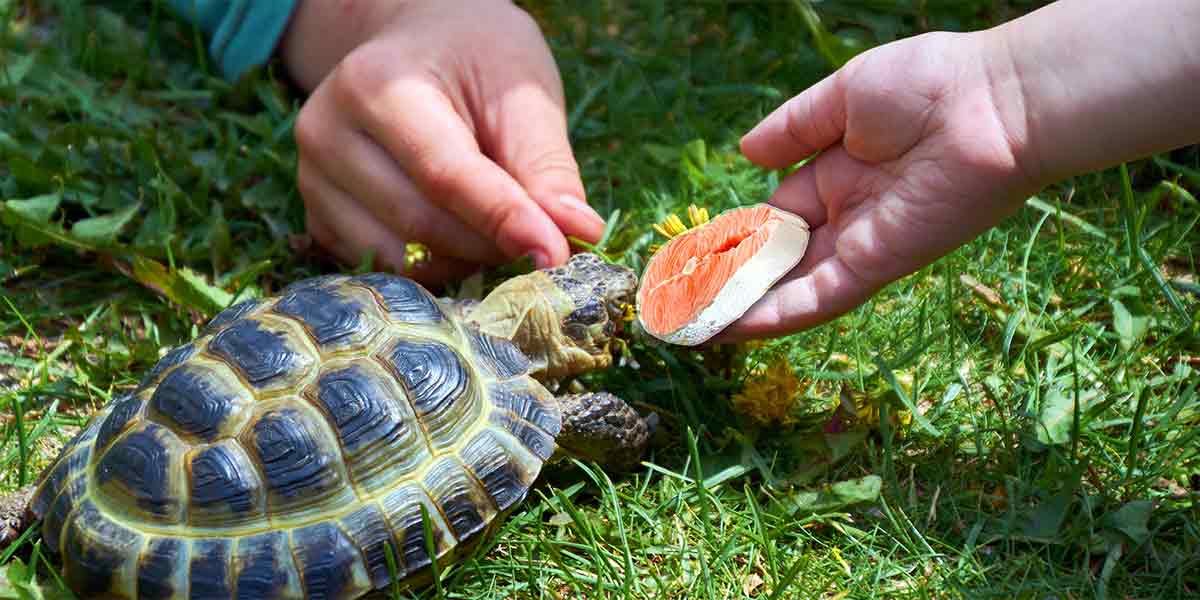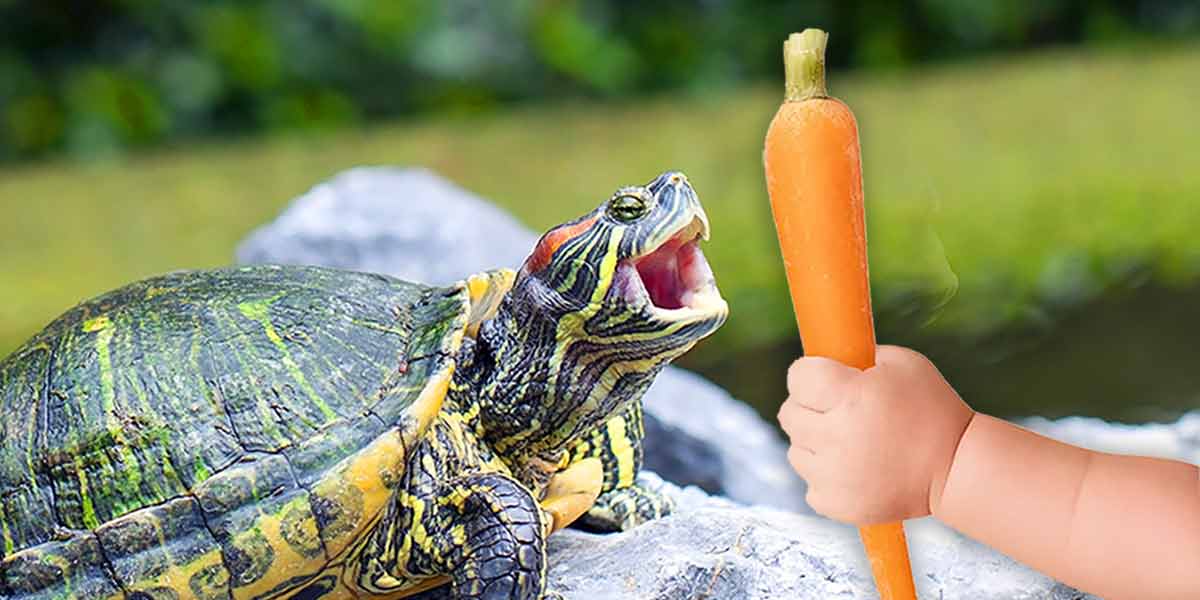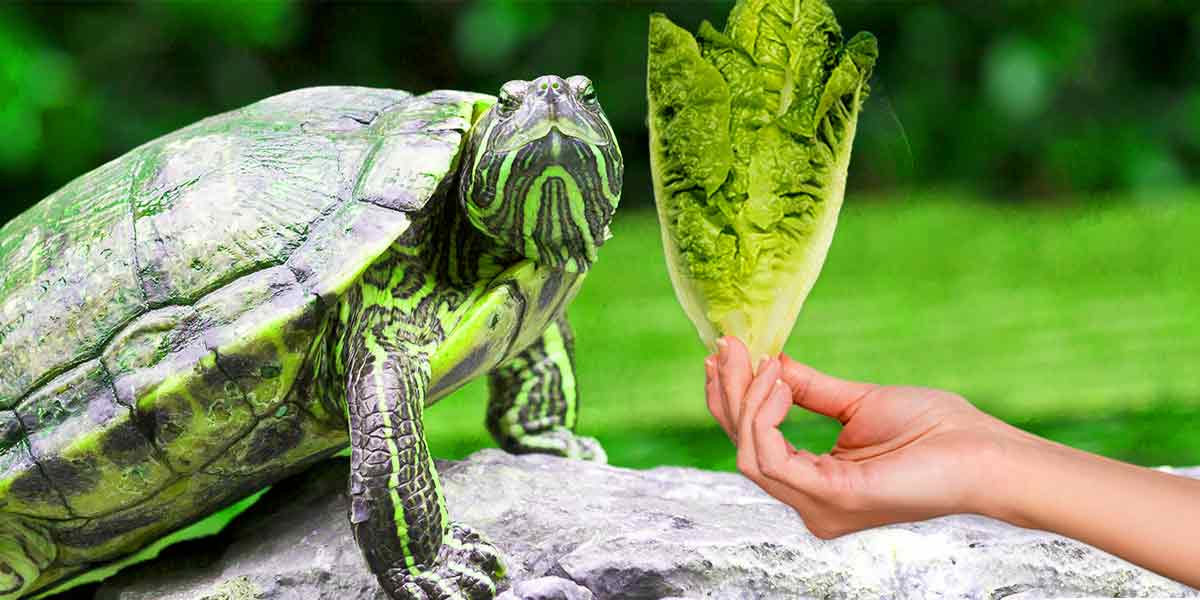Can I feed my turtle strawberries? If you’re a turtle owner, you may have wondered if it’s okay to feed your pet strawberries. After all, turtles are known to be herbivores, but their diet can vary depending on the species. In this article, we’ll explore whether or not strawberries are a safe and healthy food option for your turtle.
As an affiliate, we earn from qualifying purchases. We get commissions for purchases made through links in this website’s posts from Amazon and other third parties.
On the one hand, strawberries can be a healthy addition to your turtle’s diet. They are high in vitamin C, fiber, and antioxidants, which can help support your turtle’s immune system and overall health. Plus, many turtles enjoy the taste and texture of strawberries, making them a great way to add variety to their diet.
However, it’s important to be cautious when feeding your turtle strawberries. Like many fruits, strawberries are high in sugar, which can lead to weight gain and other health issues if consumed in excess.
Additionally, some turtles may be allergic to strawberries or have difficulty digesting them, leading to digestive upset or other health problems. As with any new food, it’s important to introduce strawberries slowly and in moderation and to monitor your turtle’s health and behavior closely.
While turtles can eat a variety of fruits and vegetables, it’s essential to know which ones are safe for them to consume. In this article, we’ll take a closer look at whether or not strawberries are a good choice for your turtle’s diet and what you should keep in mind when feeding them this sweet treat.
Understanding turtle diet
Since they consume both plants and animals, turtles are omnivores. Depending on their species, age, and size, their diet varies. It is essential to provide your turtle with a balanced diet to keep them healthy and happy.
Turtles consume a diverse range of foods found in the wild, including vegetation, insects, worms, snails, fish, and fish eggs. However, captive turtles’ diets are often limited and may not provide all the necessary nutrients. Therefore, it is crucial to offer a diverse diet that includes both animal and plant-based foods.
Here are some general guidelines to follow when feeding your turtle:
- For a balanced diet, provide a variety of foods. Turtles need a mix of protein, vegetables, and fruits in their diet. You can feed your turtle commercial turtle food, as well as fresh foods like leafy greens, carrots, and fruits.
- Provide food that is appropriate for your turtle’s size and species.
- Offer a mix of animal and plant-based foods. A balanced diet with a range of foods is necessary for turtles. Thanks to this, they can obtain all the nutrients they require to be healthy.
- Protein is important. Turtles need protein to build and repair their bodies. Good sources of protein include insects, fish, and meat.
- Fiber is essential. Turtles need fiber to aid in digestion. Good sources of fiber include leafy greens and vegetables.
- Calcium is crucial. Calcium helps turtles develop strong bones and shells. Good sources of calcium include leafy greens, vegetables, and calcium supplements.
- Do not give your turtle processed or foods heavy in fat.
- Provide clean water. Turtles must always have access to pure, fresh water. Make sure to change their water regularly and use a water conditioner to remove any harmful chemicals.
- Consider supplements. Some turtles may need additional supplements, such as calcium or vitamin D3, to maintain their health.
- Do not overfeed your turtle. Turtles have a slow metabolism, so they don’t need to eat as often as other animals. Overeating can result in obesity and other medical issues.
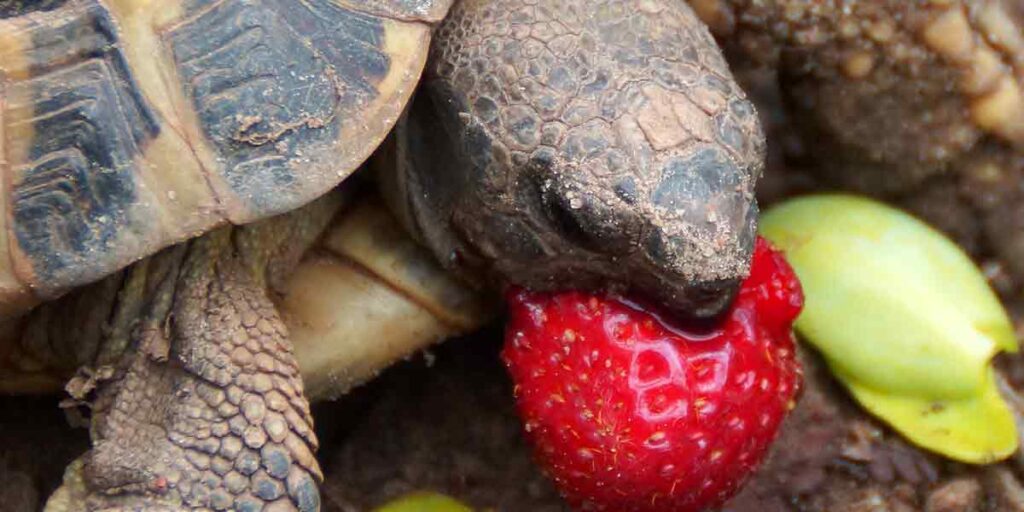
While turtles can eat strawberries, they should not make up a significant portion of their diet. Fruits are high in sugar and can cause health problems if overfed. Therefore, it is best to offer fruits as a treat or supplement to their regular diet.
In conclusion, understanding your turtle’s diet is crucial to their overall health and well-being. By providing a balanced diet that includes a variety of foods, you can help ensure your turtle lives a long and healthy life.
Can I feed my turtle strawberries?
If you’re wondering: “Can I feed my turtle strawberries?” the answer is yes, they can. Strawberries are safe for turtles to eat, and they can even provide some nutritional benefits. However, it’s important to remember that strawberries should only be given to turtles as an occasional treat and not a regular part of their diet.
Tortoise Turtle eating strawberry🍓video:
While strawberries are safe for turtles to eat, they should be given in moderation. This is because strawberries are high in sugar, and too much sugar can be harmful to turtles. In addition, strawberries should be washed thoroughly before feeding them to your turtle to remove any pesticides or other toxic chemicals that may be present.
How to prepare and serve your turtle strawberries
Turtles should only be fed fresh, clean fruits and vegetables that have been thoroughly washed.
When feeding strawberries to your turtle, it’s important to remember that they should be cut into small pieces to make them easier for your turtle to eat. You can also mix strawberries with other fruits and vegetables to make a healthy and balanced diet for your turtle.
How many strawberries should you feed your turtle?
Can I feed my turtle strawberries? Yes, but too many strawberries can lead to digestive issues and even obesity in turtles. As a general rule, fruits and vegetables should make up no more than 25% of your turtle’s diet, with the rest consisting of protein sources like insects and pellets.
Some good options for animal-based foods include:
- Pellets specifically designed for turtles
- Insects, such as crickets or mealworms
- Small amounts of cooked chicken or fish
For plant-based foods, you can offer:
- Dark, leafy vegetables like spinach or kale.
- Vegetables, such as carrots or squash
- Fruits, such as strawberries or melons
Benefits of feeding strawberries to turtles
Nutritional value
Turtles can get a lot of their nutrients from strawberries. They are low in calories and high in fiber, which can help regulate your turtle’s digestion. They are also rich in vitamin C, which can boost your turtle’s immune system and help keep it healthy. Additionally, strawberries contain antioxidants that can help prevent cell damage and reduce the risk of certain diseases.
Hydration benefit
Turtles need to stay hydrated, and feeding them strawberries can help with that. Strawberries are about 90% water, which can help keep your turtle hydrated and prevent dehydration. This is especially important during hot weather or if your turtle is not drinking enough water.
Variety in diet
Feeding your turtle a variety of foods is important for its overall health and well-being. Adding strawberries to your turtle’s diet can provide a welcome change of pace and add some variety to its meals. This can help keep your turtle interested in its food and prevent boredom.
In conclusion, feeding strawberries to your turtle can provide a variety of benefits, including nutritional value, hydration, and variety in the diet. However, it’s important to remember that strawberries should not make up a large portion of your turtle’s diet. As with any new food, it’s best to introduce strawberries slowly and monitor your turtle’s reaction.
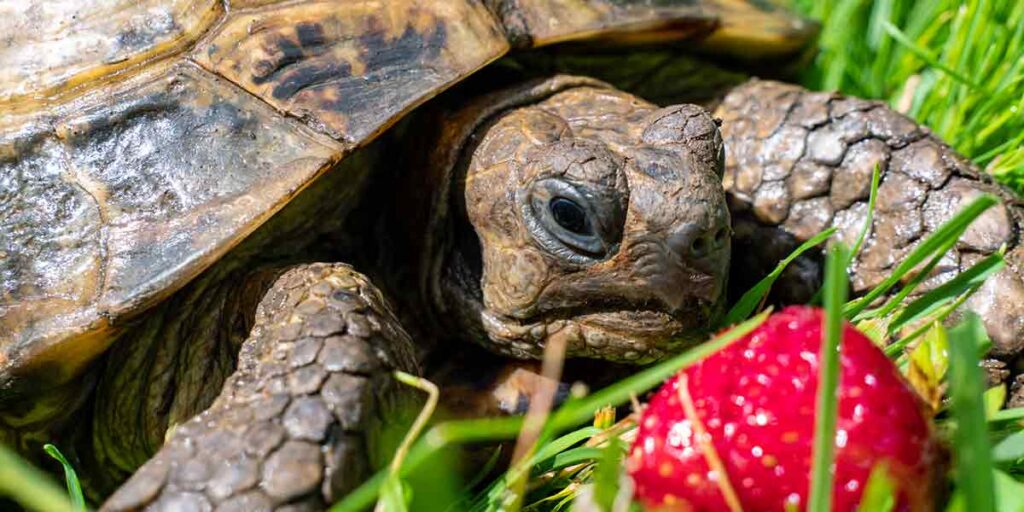
Potential risks of feeding strawberries to turtles
When it comes to feeding your turtle, it’s important to be aware of the potential risks of certain foods. Can I feed my turtle strawberries? While strawberries may seem like a healthy treat, they can pose sometimes risks to your turtle’s health.
Sugar content
Strawberries are high in natural sugars, which can cause health problems for turtles if consumed in excess. Too much sugar can lead to obesity, diabetes, and other health issues.
Acidity
Strawberries are also acidic, which can cause sometimes digestive problems for turtles. Excess acidity in the diet can lead to stomach upset, diarrhea, and other digestive issues. If you do choose to feed your turtle strawberries, make sure to do so in small amounts and monitor their digestive health closely.
Digestive issues
Turtles have sensitive digestive systems, and feeding them the wrong foods can cause serious health problems. For some turtles strawberries can be difficult to digest, especially if they are not used to eating them. This can lead to blockages in the digestive tract, which can be life-threatening.
Allergy
In addition, some turtles may be allergic to strawberries, so it is important to monitor your turtle’s behavior after giving them this treat. If you notice any signs of an allergic reaction, such as swelling or difficulty breathing, contact your veterinarian immediately.
In conclusion, while strawberries can be a tasty treat for your turtle, it’s important to be aware of the potential risks they pose. Always monitor your turtle’s health closely. If you notice any signs of digestive distress, such as diarrhea or vomiting, stop feeding strawberries immediately and consult with a veterinarian.
Conclusion
Yes, you can feed your turtle strawberries. According to multiple sources, including PetKeen, The Spruce Pets, and Turtle Information, turtles can eat strawberries as a treat from time to time. Strawberries contain several beneficial nutrients such as vitamin C, potassium, folic acid, and fiber, but they also contain a lot of sugar, so it’s important to feed them in moderation.
Always consult with a veterinarian or do your research before introducing any new foods to your turtle’s diet.

